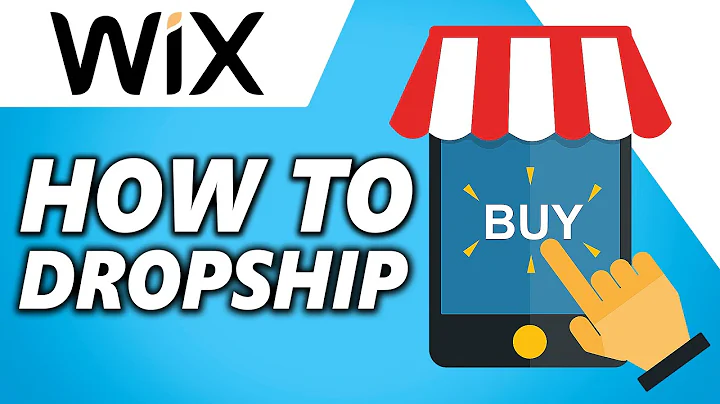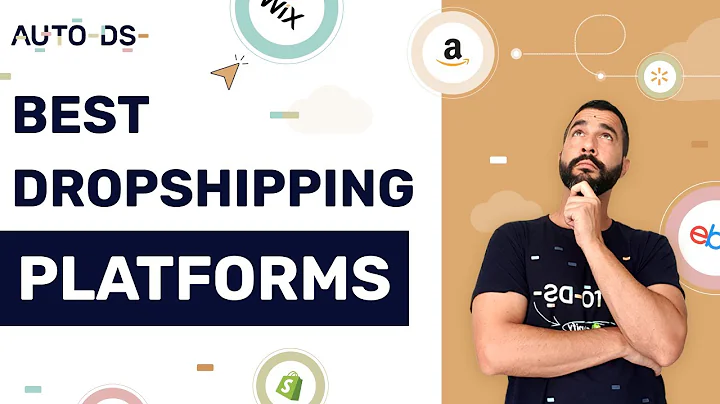The Legalities of Dropshipping Revealed
Table of Contents
- Introduction
- Is dropshipping Legal?
- Selling Unauthorized Products
- Tax Obligations in Dropshipping
- The Issue of Selling Knock-offs
- Selling Prohibited or Restrictive Products
- Treating Dropshipping as a Real Business
- Building Profitable Online Stores
- Conclusion
Introduction
When considering starting an online store, the question of whether dropshipping is legal may have crossed your mind. In this article, we will explore the legal aspects of dropshipping and discuss the potential pitfalls to avoid. We will examine the importance of selling authorized products, tax obligations, the issue of selling knock-offs, and the potential consequences of selling prohibited or restrictive products. Additionally, we will emphasize the need to treat dropshipping as a legitimate business and provide insights on building highly profitable online stores.
Is Dropshipping Legal?
Dropshipping, in its simplest form, is a method of fulfillment where the retailer handles the sales while the supplier handles the shipping. This fulfillment method is completely legal and widely used in the e-commerce industry. However, there are certain circumstances where dropshipping can become illegal and get individuals into trouble.
Selling Unauthorized Products
One of the crucial aspects to be aware of when engaging in dropshipping is selling products that you are not authorized to sell. It is imperative to obtain proper authorization from the supplier before including their products in your online store. Selling unauthorized products not only violates legal agreements but also puts you at risk of legal consequences.
Tax Obligations in Dropshipping
Just like any other business, dropshipping requires careful management of financial transactions, including tracking incoming and outgoing funds. Therefore, it is essential to stay compliant with tax regulations and ensure that you pay the necessary taxes on your profits. A common misconception is that conducting business online exempts one from tax obligations. This is not true, and neglecting tax payments can lead to serious legal issues.
The Issue of Selling Knock-offs
Selling knock-off products, which are unauthorized replicas or counterfeits of branded items, is both illegal and unethical. Engaging in such practices can result in severe legal consequences. It is crucial to establish relationships with trustworthy suppliers who provide genuine products and avoid any involvement in selling counterfeit goods.
Selling Prohibited or Restrictive Products
Another area where dropshippers can run into legal trouble is selling prohibited or restrictive products. Examples include supplements with unverified claims or products that require specific certifications or licenses. It is vital to thoroughly research the legal requirements and regulations for each product category to ensure compliance and avoid any legal issues.
Treating Dropshipping as a Real Business
To succeed in dropshipping, it is essential to approach it as a legitimate and serious business endeavor. This involves partnering with reputable brands or suppliers and obtaining proper authorization to sell their products. It also means developing expertise in paid traffic generation to drive sales and maximize profitability. By treating dropshipping as a real business, you can build a sustainable and profitable online venture.
Building Profitable Online Stores
Creating profitable online stores requires a combination of strategic planning, effective marketing, and continuous improvement. Implementing proven strategies, such as optimizing product listings, leveraging social media advertising, and providing exceptional customer service, can significantly enhance the success of your dropshipping business. With dedication and persistence, you can build a highly profitable semi-automated online store.
Conclusion
In conclusion, dropshipping is a legal method of fulfillment widely used in the e-commerce industry. However, there are legal implications and potential consequences that dropshippers need to be aware of. It is crucial to sell authorized products, fulfill tax obligations, avoid selling knock-offs, and comply with regulations for selling prohibited or restrictive items. By treating dropshipping as a legitimate business and employing effective strategies, entrepreneurs can build successful online stores and capitalize on the vast opportunities in the e-commerce landscape.
Highlights
- Dropshipping is a legal method of fulfillment in the e-commerce industry.
- Selling unauthorized products and neglecting tax obligations can lead to legal troubles.
- Engaging in the sale of knock-off products is illegal and unethical.
- Compliance with regulations is crucial when selling prohibited or restrictive items.
- Treating dropshipping as a real business can lead to profitability and long-term success.
FAQ
Q: Is dropshipping legal in all countries?
A: Dropshipping is generally legal in most countries, but it is essential to comply with the specific laws and regulations of each jurisdiction.
Q: Do I need to pay taxes if I have an online dropshipping store?
A: Yes, like any other business, dropshippers are required to pay taxes on their profits. It is crucial to consult with a tax professional to ensure compliance.
Q: Can I sell branded products through dropshipping?
A: You can sell branded products through dropshipping as long as you have proper authorization from the brand or supplier.
Q: What are some strategies for building a profitable online store?
A: Optimize product listings, leverage social media advertising, and provide exceptional customer service to increase the chances of building a profitable online store.
Q: Can I sell supplements through dropshipping?
A: Yes, you can sell supplements through dropshipping, but ensure compliance with relevant regulations and obtain necessary certifications.



















